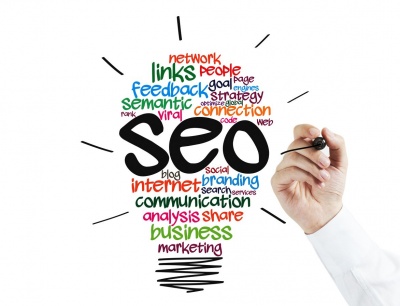DEMYSTIFYING SEO: A CONCISE GUIDE TO SEARCH ENGINE OPTIMISATION

In the vast landscape of the internet, where millions of websites vie for attention, Search Engine Optimisation (SEO) emerges as a crucial tool for online success. But what exactly is SEO, and why does it matter? In this succinct guide, we will unravel the mysteries of SEO, shedding light on its fundamental concepts and its profound impact on digital visibility.
Defining SEO
SEO, or Search Engine Optimisation, is the practice of enhancing a website's visibility on search engines like Google, Bing, and Yahoo. The primary goal is to improve the website's ranking in search engine results pages (SERPs) for relevant keywords, thereby increasing organic (non-paid) traffic.
Key Components Of SEO
Keywords:
Keywords are the foundation of SEO. These are the terms and phrases users type into search engines when looking for information. Effective SEO involves thorough keyword research to understand what terms are relevant to a website's content and target audience.
On-page SEO:
On-page SEO involves optimising individual web pages to make them more search-engine-friendly. This includes optimising meta tags (title, description), using relevant headers, creating quality content, and incorporating keywords naturally.
Off-page SEO:
Off-page SEO focuses on factors outside the website itself, such as backlinks. Quality backlinks from reputable websites can significantly boost a site's credibility and authority in the eyes of search engines.
Technical SEO:
Technical SEO deals with the technical aspects of a website that affect its search engine performance. This includes website speed, mobile-friendliness, secure (HTTPS) connections, and proper website structure.
User experience (UX):
Search engines increasingly prioritise user experience. Websites that are easy to navigate, mobile-friendly, and provide valuable content tend to rank higher. Google, for instance, factors in metrics like bounce rate and time on page when determining rankings.
Why Does SEO Matter?
Increased visibility:
Think of the internet as a massive library, constantly growing with new information. Without SEO, your website is like a book placed on a random shelf with no catalogue entry. The chances of someone stumbling upon it are slim. SEO acts as your website's librarian and cataloguer. By optimising your content and website structure, you're essentially telling search engines what your site is about and why it's relevant to specific searches.
The higher you rank, the more prominently you appear in those search results – the front shelves of the library, so to speak. This increased visibility directly translates to more eyes on your website, increasing brand awareness and the potential for traffic. In today's competitive digital landscape, standing out is paramount, and SEO is a fundamental tool for achieving that.
Credibility and trust:
When a website consistently ranks among the top results on search engines like Google, users often subconsciously interpret this as a signal of authority and reliability within its industry. This perception stems from the understanding that search engines prioritise and showcase websites deemed most relevant and valuable. Consequently, appearing at the top not only increases visibility but also lends an inherent credibility to the brand.
Effective SEO strategies, by focusing on factors like high-quality content, user experience, and authoritative backlinks, actively contribute to building and strengthening a positive online reputation. This enhanced reputation, in turn, fosters greater user trust, encouraging engagement, conversions, and ultimately, brand loyalty.
Targeted traffic:
By meticulously optimising website content and structure for specific, relevant keywords – the exact phrases and terms users type into search engines when seeking particular information, products, or services – SEO acts as a highly effective magnet. Instead of casting a wide net and hoping to catch anyone, keyword optimisation ensures your website appears precisely when individuals are actively expressing their needs and intent. This results in a stream of targeted traffic – visitors who have a pre-existing interest in what you offer. While these users are further along in their decision-making process, actively looking for solutions or information you provide, they are significantly more likely to take the desired action, whether that's making a purchase, submitting a contact form, subscribing to a newsletter, or becoming valuable leads for your business.
Cost-effectiveness:
While paid advertising campaigns can deliver immediate visibility and a quick influx of traffic, their effectiveness is directly tied to ongoing expenditure. Once the budget is used up, the traffic comes to an end. In contrast, SEO is a cost-effective long-term strategy because the foundational work of optimising your website and content builds an asset that continues to attract organic traffic over time without direct per-click costs.
Although SEO requires an initial and ongoing investment of time, effort, and potentially resources in areas like content creation and technical improvements, the resulting organic traffic – visitors who find your site naturally through search results – is essentially 'free' in the long run. This sustained flow of relevant traffic can lead to a significantly higher return on investment over time compared to the continuous costs associated with paid advertising, making SEO a valuable and enduring component of a comprehensive online strategy.
Conclusion
In essence, Search Engine Optimisation is a multifaceted approach to improve a website's visibility and relevance on search engines. By understanding and implementing SEO strategies, businesses and individuals can unlock the full potential of the internet, reaching a broader audience and achieving online success. Contact us to unlock the full potential of SEO and achieve measurable online success with our expert London SEO agency.

